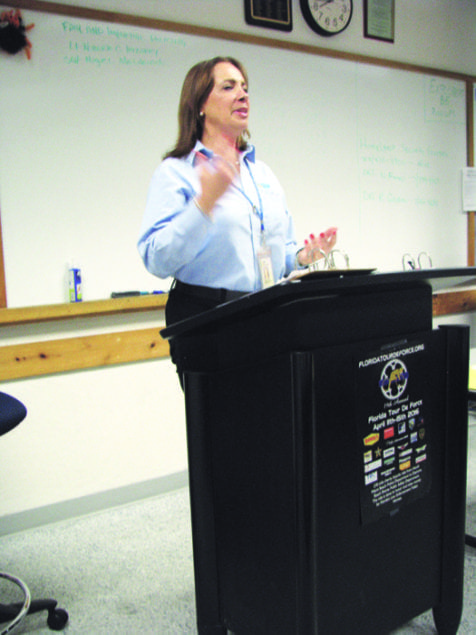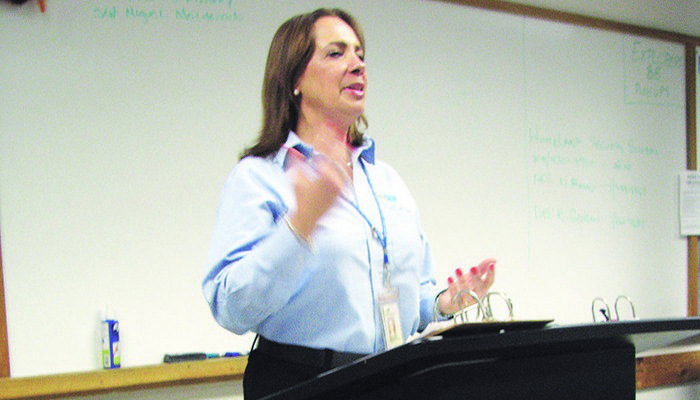
“Good fences make good neighbors” was how a Yankee farmer described keeping peace in Mending Walls, an eloquent Robert Frost poem.
In modern Miami-Dade suburbs, however, the answers are provided in much stodgier prose headed “The Minimum Housing Code.”
“These are the basic regulations we enforce to keep residents happy and at peace with one another,” said Maritza Rojas, a county officer working out of Miami-Dade’s Compliance Bureau headquartered at 11805 SW 26 St.
The Bureau has been in effect since the disappearance of the Team Metro neighborhood units once providing the service in rented storefront offices.
“When we get complaints today; we answer them in a matter of days, even just a single day later,” she said, crediting a recent reorganization of the division.
Rijas was speaking during an appearance before a Citizens Advisory Committee audience at the West District Police headquarters on May 25.
Among the most frequent complaints: food trucks parked on a next-door yard that needs a signed letter of permission from the property owner or a $50 fine can be assessed. Hours for food trucks are limited to 7-10 p.m. in residential areas.
“For the most part, any offense is likely to take place during off-duty hours of compliance officers, so illegal food truck parking has to be proven if the resident is willing to make a court appearance to give testimony. That requires a photograph or some similar proof of the incident.”
The rash of illegal squatters in vacant homes during recent years has diminished in 2016, but “we get calls about teenagers occupying them,”
Rojas noted. “We check empty residences to see that every opening is boarded up and covered, but lately, teenagers open holes in the roof and climb in. They get very creative, you know.”
Among other contemporary issues:
• Parking of 18-wheelers on residential lots or adjoining swale is illegal;
• Vehicle repairs on home lots must be confined to minor work (oil changes);
• Sale of vehicles from residences are confined to two per year;
• For removal, “derelict” cars must display a value of $500 or less;
• Garages used for occupancy without a permit can result in a $1,500 fine;
• Lawn or lot grass-cutting is required if growth exceeds 11-12 inches;
• Technically, street peddlers need “bike pedaling licenses” to operate, and
• Commercial graffiti must be removed within three days.
Rojas offered a reminder for the coming political season: all campaign signage, including those staked on private lawns, must be removed within 30 days after candidate balloting.
The Minimum Housing Code requires all houses and apartments to be maintained in a safe and sanitary condition and to contain certain basic equipment, often subject to reasonable review by a bureau staff member, Rojas said.
The Code applies throughout all of unincorporated Miami-Dade County, covering owner-occupied homes as well as rented homes, apartments, and rooming houses with four units and less. Violators, whether owner or tenant, may be prosecuted in civil or criminal court.
Compliance officers are available from 7:30 a.m. to 4 p.m. Monday through Friday to answer questions, provide information and assist in the investigation of code violations through the Neighborhood Regulations Division, telephone 786-315-2552. The county 3-1-1 non-emergency service line is available 24/7 for complaints.






